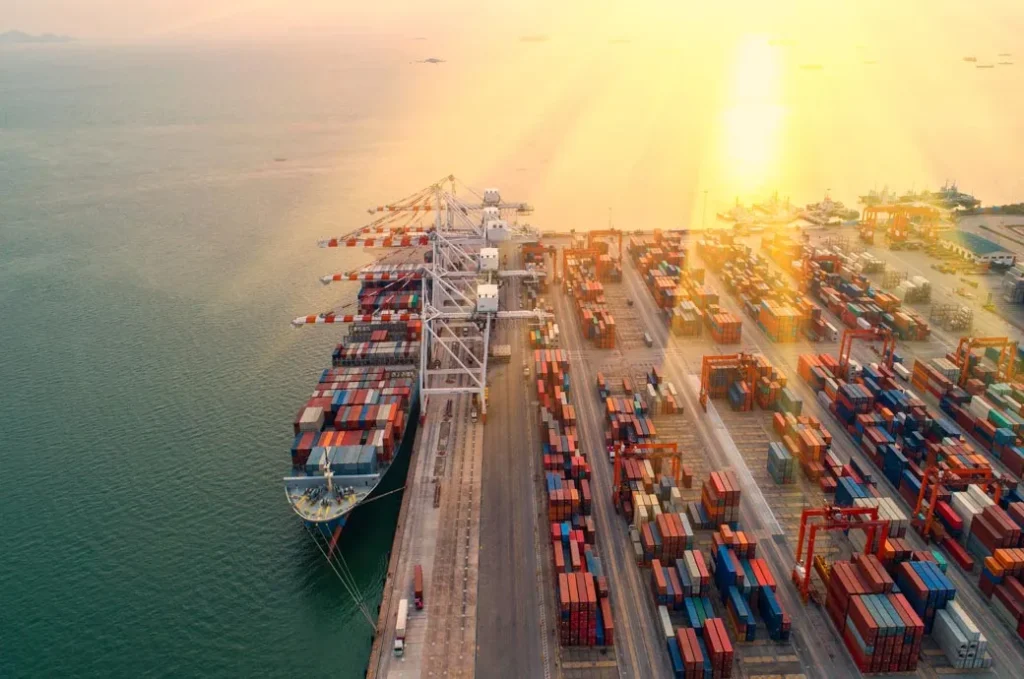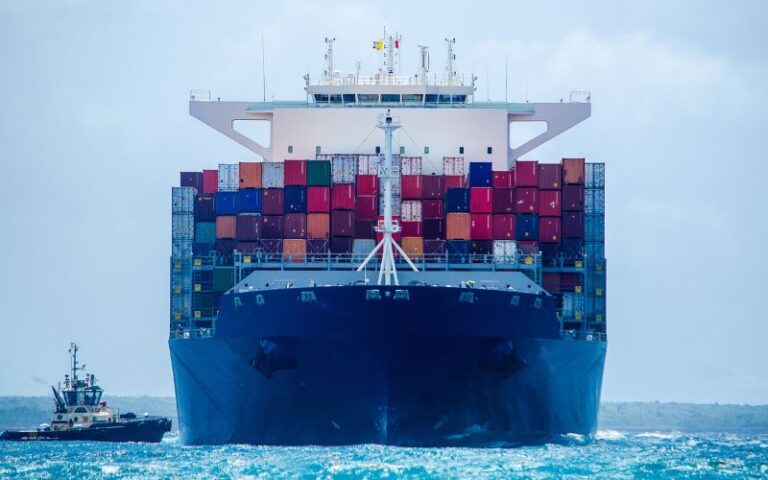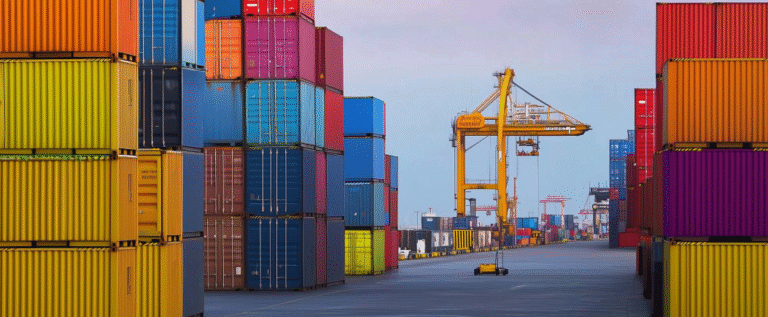Shipping agencies play a crucial role in Nigeria’s busiest ports—Apapa, Tin Can Island, Onne, Warri, Calabar, and soon Lekki Deep Sea Port. Though often overlooked, they are essential for smooth vessel arrivals, port clearance, cargo handling, and quick turnaround. Without these agencies, maritime trade would face costly delays, poor communication, and administrative breakdowns.
From the moment a ship arrives on Nigeria’s coast until its cargo is offloaded, shipping agents manage everything from pilotage to berthing, customs clearance, crew services, tally checks, cash payments, and more. So, what exactly does a shipping agent do at Nigerian ports?
1. Vessel Arrival & Berthing Coordination
Berthing coordination is among the shipping agency’s earliest tasks:
- Securing a Berth: Nigerian Ports Authority (NPA) or terminal operators are approached by agencies to reserve a ship arrival, avoid congestion, and reduce waiting time
- Pilotage and Tug Arrangements: They coordinate pilot and tug services to safely and efficiently get ships in or out of the berth.
- Mooring and Unmooring: With stevedores and port staff, agents coordinate safe unmooring and mooring, especially in large complexes such as Apapa and Tin Can Island.
Orchestration is crucial in such busy ports as Apapa, where delay costs thousands in demurrage.
2. Documentation & Compliance
Shipping agents deal with all the legal requirements and regulatory paperwork:
- Port Formalities: They submit cargo manifests, stowage plans, and discharge/loading lists to NPA, Customs, and terminal operators.
- Customs and Immigration Coordination: Agents assist in customs declarations, clearance of the ship and cargo, visa arrangements, crew immigration, port health, and quarantine procedures.
- Electronic Cargo Tracking Note (ECTN): On exports, agents use ECTN (also known as BESC or ACID across African countries) that has been at least 5 days ahead of arrival so as to avoid rejection or penalty.
Accurate documentation ensures regulatory compliance and smooth port operations.
3. Cargo Operations & Handling Oversight
Once the ship has arrived, the shipping agent oversees the cargo operation:
- Discharge and Loading Supervision: Agents book stevedore labor who tally and load/discharge cargo under port watch.
- Tallying and Survey: They verify tally documents and surveys, producing reports for NPA and shipper owners, and cargo quantity verification against documents.
- Warehousing & Stacking Plans: Agents liaise with terminal operators to plan storage layout and stacking plans for convenient movement into bonded or outgoing portions.
- Real-time Cargo Updates: Providing real-time reports to ship owners or charterers of cargo condition, completion schedules, and glitches.
In busy terminals, the monitoring reduces demurrage and losses due to miscounts or damage.
4. Vessel Husbandry & Crew Services
Shipping agencies provide significant vessel husbandry services during the port call:
- Fresh water, bunkering, maintenance, spares: They manage the supply of provisions, water, fuel, spare parts, and arrange vessel repair or inspection where needed.
- Crew welfare: Organizing crew changes, medical treatment, shore transport, visas, and accommodation if needed (Cargoburg Logistics Limited).
- Waste removal and sludge disposal in compliance with port and environmental regulations.
These services maintain the ship in regulatory compliance and operation while in port.
5. Financial Disbursement Accounts
A highly developed but major function of shipping agents is to make financial accounts for work done:
- Disbursement Account (DA): Agents total all port charges—berthing fee, tugs, pilot, stevedore, documentation, storage, and any local charges—into a DA that is sent to ship owners or charterers for authorization.
- Verification and audit: Because at times a protecting agent may be appointed to audit or reconcile accounts to prevent overcharging or errors.
When regulated well, this reduces the risks of hidden expenses and upholds spending transparency.
6. Protective & Liner Agency Functions
Agents wear multiple hats depending on their designation:
- Liner Agents: Represent regular shipping lines and undertake booking, cargo manifesting, and port and shipping line loading plan coordination.
- Protective Agents: They are employed by charterers to independently verify stevedore performance, claims for demurrage, and port fees, especially if a local agent is working on behalf of the ship owner or a competing interest.
Double role ensures fairness and fiduciary protection during port operations.
7. Acting as a Communication Bridge
Shipping agents act as a major point of liaison among stakeholders:
- They facilitate shipowners, charterers, port authorities, customs, stevedores, terminal operators, shippers, and consignees to keep everyone informed and on the same wavelength.
- They settle such matters as cargo damage, delivery contention, customs delays, or vessel handling differences in real-time.
Their function avoids delay, misunderstanding, and cost overrun.
8. Challenges at Nigerian Ports
Nigeria has unique operational latitudes and challenges:
- Port Congestion and Bottlenecks: Especially in the case of Apapa and Tin Can, strip weeks from cargo release times and drive demurrage fees through the roof (Reddit).
- Infrastructure Limitations: Outdated cranes and storage houses slow cargo processing and loading operations.
- Security Risks: Risks like cargo robbery and theft within terminals make it necessary for agents to coordinate closer monitoring and risk management.
- A changing Regulatory Environment: frequent updates to port tariffs, customs procedures, and documentation like ECTN keep agents on their toes always.
Adequate agents are precious friends during such complexities to ensure port calls are smooth and compliant.
9. Future Trends: Deep-Sea Ports & Infrastructure Investment
Nigeria is fast developing its maritime infrastructure:
- A $600 million Maersk investment will attempt to mechanize and automate ports in Lagos, easing congestion and boosting efficiency.
- Nigeria’s Lekki Deep Sea Port, fully automated, opened in 2023 and will cut turnaround time dramatically and raise cargo capacity much further than riverside ports like Apapa and Tin Can Island.
These developments will revolutionize port agency operations—agents must become accustomed to computerized systems, faster tracking of cargo, and altered service patterns.
10. Why It Matters for Nigerian Importers, Exporters & Businesses
To overseas and Nigerian traders, shipping agencies provide:
- Time and Cost Savings: Sound planning and paperwork remove delays and penalties.
- Compliance with Regulations: Agents handle licensing, customs clearance, ECTN, and port formalities professionally.
- Risk Management: By monitoring stevedores, inspecting cargo, and checking charges, they avert disputes and losses.
- Greater Transparency: Disbursement accounts that are written and periodic feedback ensure trust between principals and operators.
- Easier Operation: Outsourcing activities to a seasoned agent minimizes administrative work for importers/exporters.
In short, an informed shipping agency is the backbone of gainful trade through Nigerian ports.
Conclusion
In Nigerian ports, shipping agencies play a crucial role in coordinating ship calls, including scheduling berths, handling documentation, managing crew and cargo, financial settlement, and keeping stakeholders informed. They ensure trade runs smoothly and legally at major ports like Apapa, Tin Can Island, Onne, and Lekki Deep Sea Port.
The advantage of employing seasoned agents, such as Wolid International, includes local expertise, ISO-certified logistical procedures, and proximity to terminal operators and port authorities.





